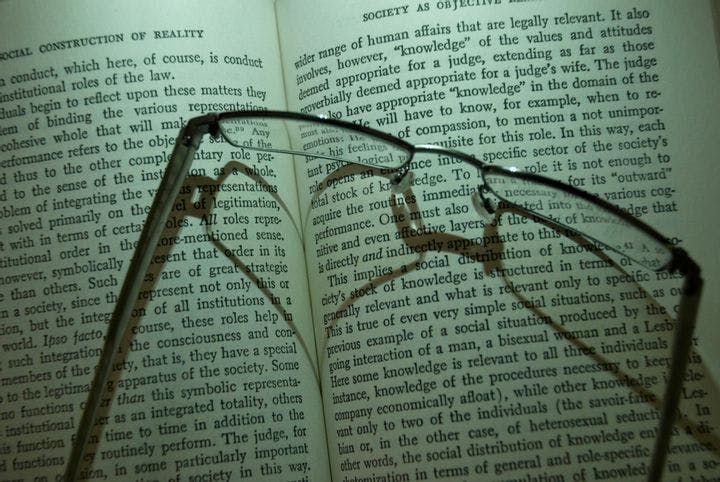Summer 2009
Is Sociology Dead?
– The Wilson Quarterly
With so much of human behavior being linked to human DNA, what's a sociologist to do if everything is inherited?
The first law of sociology, according to an old joke about the limits of social science, is “Some do, some don’t.” For more than a century, sociologists have been trying to tease out the answers to such questions as who votes, gets ahead, commits crimes, or goes to college. But while social scientists were producing complex narrative accounts of myriad causal factors, biologists decoded some three billion units of human DNA. Then geneticists released a tsunami of papers purporting to reveal a genetic basis for phenomena ranging from voting behavior to car wax preference. What’s a sociologist to do if everything is inherited?
For nearly two decades, many of them have adopted a minimalist or even “know-nothing” mindset about genetic research. To write about something is to legitimate it, they have held, believing that the new focus on the genetics of behavior (particularly as it relates to race) might be a thinly veiled “return of the eugenicist project of the first half of the 20th century,” writes Peter Bearman, a sociologist at Columbia University, who edited a special supplement to the American Journal of Sociology with sociologists Molly A. Martin of Pennsylvania State University and Sara Shostak of Brandeis University.
But “inattention” to genetics isn’t likely to pass muster with the public or those who dole out research grants. Rather than try to debunk the role of genes in behavior, writes Northwestern sociologist Jeremy Freese, he is willing to concede that “behavioral geneticists are (roughly) correct in concluding that virtually every outcome sociologists have cared to study about individuals is genetically ‘heritable’ to a nontrivial degree.”
Consider, he suggests, early sexual activity among adolescents: If genetic differences are a partial cause of height, and height is a partial cause of attractiveness, and attractiveness is a partial cause of positive interactions with others, and positive interactions are a partial cause of self-esteem, and self-esteem is a partial cause of delayed first intercourse, then age at first intercourse is genetically influenced. The important point is that “sociological thinking is fundamental to explaining why.”
In this dense, 316-page supplement to one of the nation’s leading sociological journals, 29 scholars combined genetics and sociological research. Sociologist Bernice A. Pescosolido of Indiana University, Bloomington, with five collaborators, investigated the effects of a DNA variant present in some people called the GABRA2 gene, which is associated with alcoholism. While there is strong evidence GABRA2 is linked to alcohol dependence, the gene doesn’t automatically produce alcoholism the same way Gregor Mendel’s pea plants reliably passed on traits. GABRA2 seems to have little or no effect on women, and the predisposition toward alcoholism of those with GABRA2 “virtually washes away” for men with supportive families, Pescosolido and colleagues found.
Guang Guo of the University of North Carolina, Chapel Hill, studied the effect of the presence of the 9R/9R gene variant on the number of sexual partners young white men were likely to have. With two colleagues, he tracked the role of 9R/9R, which seems to be a kind of “good boy” marker associated with better grades, less binge drinking, and more seat belt wearing, and which also appears to act as a kind of brake on sexual activity involving the dopamine transporter genes in the brain.
Although dopamine is not completely understood, its line of work has earned its label as “the feel-good chemical.” Young male 9R/9R carriers (about six percent of the sample population) are less likely to engage in risky behaviors (such as having multiple sexual partners) than similar young men with a different combination of genes—called the Any10R men. Guo and his colleagues, however, found that the “protective” effect of 9R/9R can easily be overwhelmed by environment. In schools where half or more of the 9R/9R group’s fellow students have experienced sex by age 16, the “protective” effect of the 9R/9R gene vanished. In fact, according to Guo, environment seems to play a bigger role in the sexual decision-making of 9R/9Rs than on their peers. When the 9R/9Rs were surrounded by other young men who had already become sexually active, their predicted number of partners more than tripled. For those without the 9R/9R genotype, peer pressure raised the number of partners by only a little more than 20 percent.
THE SOURCE: “Exploring Genetics and Social Structure,” a supplement to American Journal of Sociology, 2008.
Photo courtesy of Flickr/Mehran Heidarzadeh
